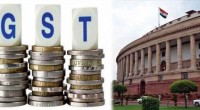
In a recent and expected turn of events, giant retail companies have gathered to wage a war against the Australian government’s proposal of applying some changes to GST starting from July 1st. Amazon, Ebay, Etsy and Alibaba have threatened to geoblock Australian online shoppers from purchasing goods from sellers overseas on their websites should the Australian government proceeds with changing its taxation system.
A Geoblock Attack On Australian Shoppers
Currently, all goods imported by Australia from overseas sellers that cost lest than $1000 are exempted from GST. However, according to the newly suggested GST taxation changes, a total of 10% tax will be applied to all imported goods and companies with an annual turnover of $75,000 will have to register with the ATO to collect taxes provided to Australian customers starting from the 1st of July this year. That is why leading companies, such as Amazon, Ebay, Etsy and the Chinese Alibaba threatened to geoblock Australian consumers from shopping on their websites if this bill passes out of concerns about their businesses.
A meeting was held yesterday (Friday, April 21, 2017) between representatives of the online retailers and the Senate Economics Committee in Melbourne to discuss the huge impact of this decision which according to Angela Steen, Etsy director of public policy, is “a dangerous precedent for Australian entrepreneurs who export their goods through platforms like Etsy”.
Ebay’s managing director, Joonman Park said that they this decision would cost almost as much as establishing a separate platform just for Australia.
“It will cost a lot to invest, and second, under the bill we are subject to the financial risk — if our sellers refuse to pay GST, we are liable for that. We don’t understand why we have to take that financial risk.” Park said.
Reinforcing taxes on foreign goods would negatively affect small businesses overseas, such as: Etsy since regardless of the size of the item, taxes would be imposed which is unfair and damaging.
“We are strongly of the view that the proposed measures should be abandoned and replaced with a fairer, more effective model based on logistic providers being responsible for the collection of GST on low-value goods,” said John O’Loghlen, Alibaba’s director of business development in Australia and New Zealand.
““The hybrid Vendor Model does not provide for efficient mechanisms to detect failure to register by these offshore suppliers, who operate in multiple overseas jurisdictions. In addition there are significant questions around enforceability. This will inevitably result in a large proportion of vendors either failing or choosing not to register, and large volumes of LVIGs entering Australia without being subject to GST,” Amazon responded.
Collectively, the representatives of those companies have agreed that the best way to resolve this economic fiasco is to geoblock online consumers in Australia. Though it is understandable that it is their right to protect their businesses and do what it is best to save them, geoblocking Australians from shopping on ginormous online retail stores like Amazon and Ebay might lead to a national rage, but would it stop the bill from being passed? That is a question only time would answer.



